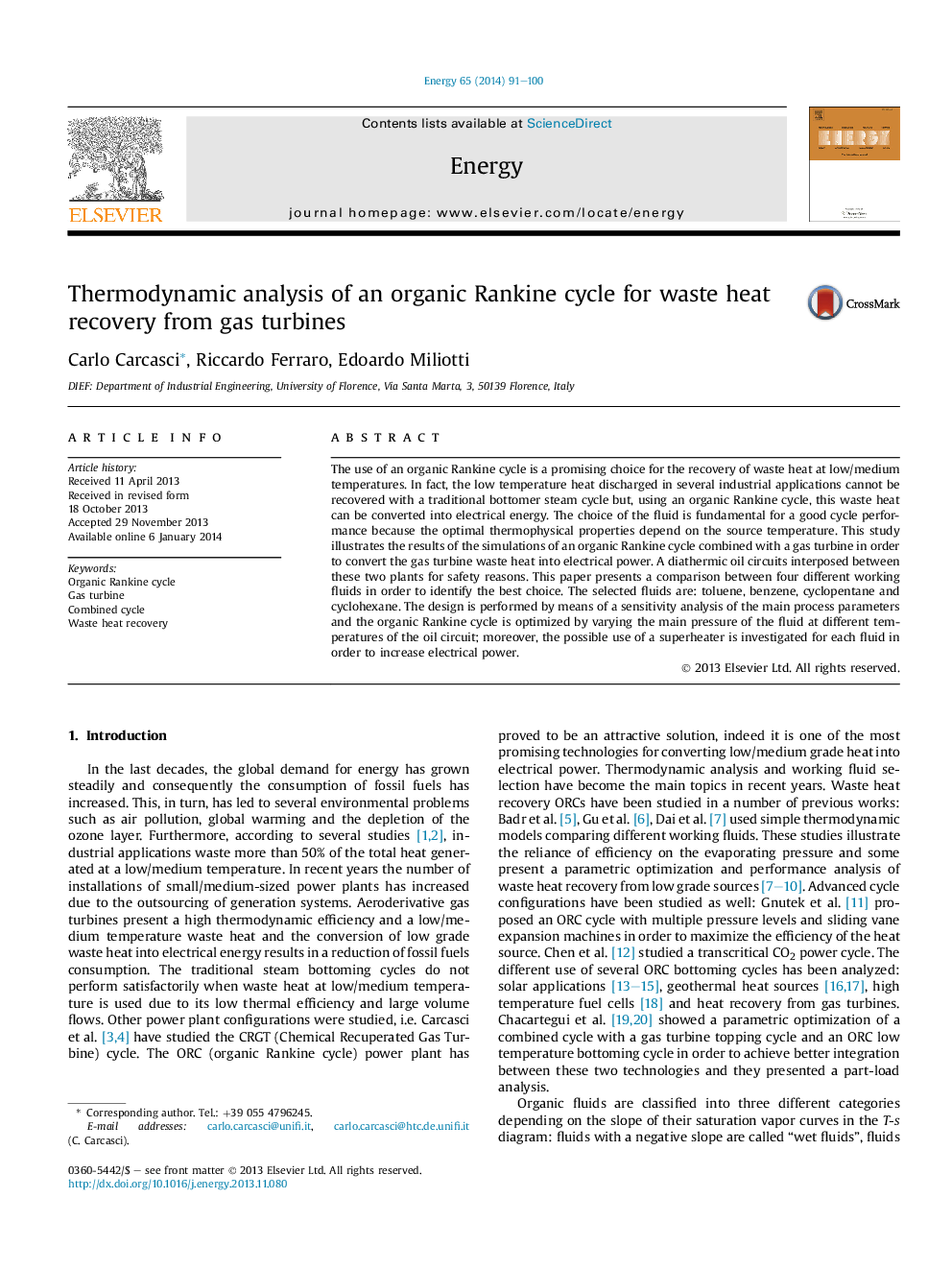| Article ID | Journal | Published Year | Pages | File Type |
|---|---|---|---|---|
| 1732666 | Energy | 2014 | 10 Pages |
•Toluene, benzene and cyclohexane perform best without the superheater.•Cyclopentane leads to the worst performance even with a superheater.•Varying oil temperature, the optimized pressure changes, but a fluid saturation limit occurs.•The choice of the working fluid depends on diathermic oil temperature range.
The use of an organic Rankine cycle is a promising choice for the recovery of waste heat at low/medium temperatures. In fact, the low temperature heat discharged in several industrial applications cannot be recovered with a traditional bottomer steam cycle but, using an organic Rankine cycle, this waste heat can be converted into electrical energy. The choice of the fluid is fundamental for a good cycle performance because the optimal thermophysical properties depend on the source temperature. This study illustrates the results of the simulations of an organic Rankine cycle combined with a gas turbine in order to convert the gas turbine waste heat into electrical power. A diathermic oil circuits interposed between these two plants for safety reasons. This paper presents a comparison between four different working fluids in order to identify the best choice. The selected fluids are: toluene, benzene, cyclopentane and cyclohexane. The design is performed by means of a sensitivity analysis of the main process parameters and the organic Rankine cycle is optimized by varying the main pressure of the fluid at different temperatures of the oil circuit; moreover, the possible use of a superheater is investigated for each fluid in order to increase electrical power.
